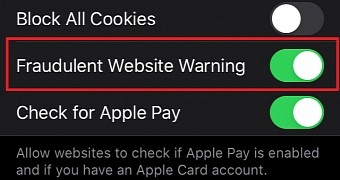Privacy-obsessed Apple is one again under fire after it was discovered that Safari on iOS sends browsing data to Chinese tech giant Tencent.
First of all, let’s see why the whole thing happens.
Apple’s browser is equipped with security controls to fight against malicious practices such as phishing. In Safari, the suite of tools supposed to protect users is this regard is called Fraudulent Website Warning, and in order to work correctly, it collects and sends information to Google Safe Browsing to compare links against a blacklist that could help determine if pages are safe or not.
But recently it was discovered that in addition to Google, Apple is also sending similar information to Chinese company Tencent, one of the names also linked with censorship and questionable collaboration with the Beijing government.
How to disable Fraudulent Website Warning
While it’s not yet clear whose and what information is sent to Tencent, Appel does reveal in the privacy policy that Safari submits browsing data to the Chinese firm.
“Before visiting a website, Safari may send information calculated from the website address to Google Safe Browsing and Tencent Safe Browsing to check if the website is fraudulent. These safe browsing providers may also log your IP address,” Apple notes.
The Fraudulent Website Warning feature in Safari can be disabled from settings on iPhone and iPad running iOS 13 (it’s believed that older versions of the operating system could also send similar information to Tencent). However, blocking the feature means that you also lose access to Google’s system, so you end missing out on the security arsenal that could otherwise prove to be pretty useful.
Apple hasn’t said anything about its collaboration with Tencent in this regard, but one of the things that users should know is that the feature is automatically enabled on all iPhones and iPads running iOS 13.
This means that users’ browsing data is sent to Google and Tencent whenever it is needed without users necessarily being aware of it.

 14 DAY TRIAL //
14 DAY TRIAL //